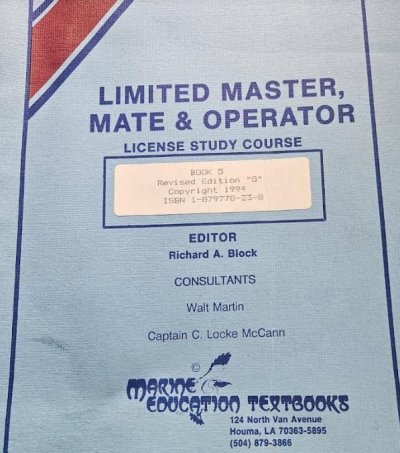And even the COLREGS section is geared to the exam to a point. I taught the classes for several different schools for over 20 years. There are always trick questions on the exams, for example giving a scenario where you are crossing a towing vessel and it is to port of you. After learning that a towing vessel could be considered RAM and would then be stand on, one would assume this is the case in the scenario. But, the question does not say the towing vessel is showing lights or shapes for RAM, so it is not RAM or stand on. In fact, in the entire 10,000 question USCG database, there is not one question where the towing vessel IS RAM. In the real world, he would put up the shapes or lights and claim privilege.



